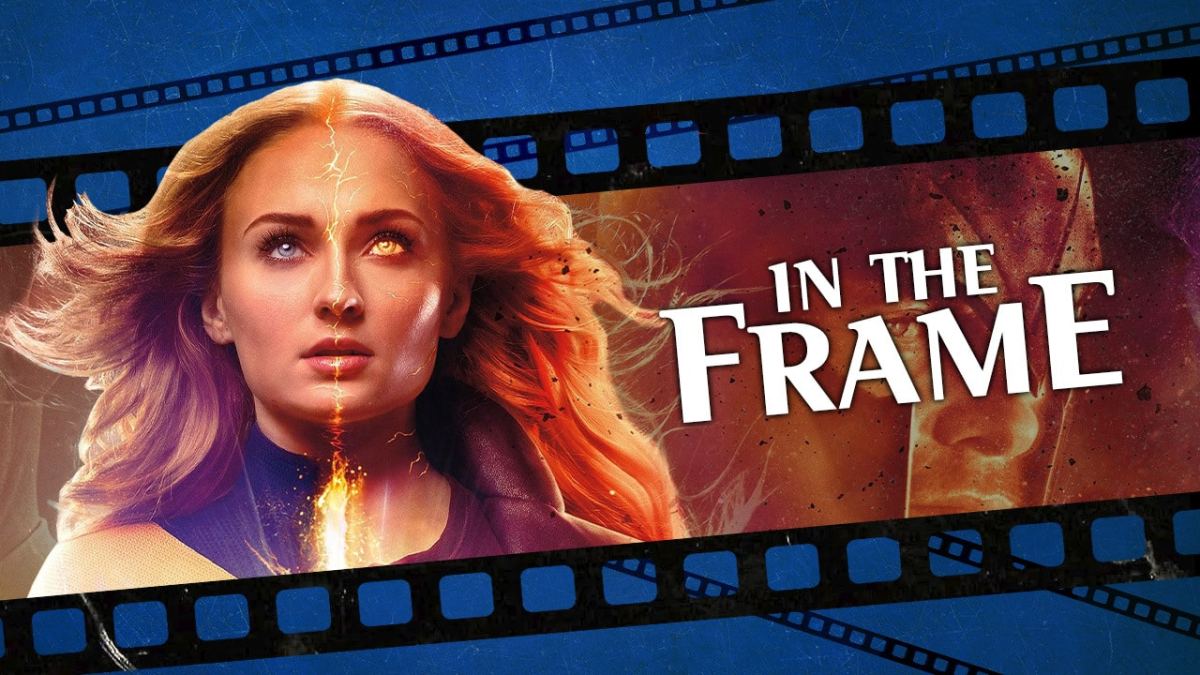This past weekend, The New Mutants finally brought the X-Men cinematic universe to a close. It is a strange moment, particularly as the original X-Men helped kickstart the modern superhero boom.
With Disney’s acquisition of 20th Century Fox, it is only a matter of time before the X-Men are folded into the larger Marvel Cinematic Universe (MCU). There is already speculation about how Marvel will fold the merry mutants into its shared universe, and there are already rumors that Shia LaBeouf is being considered for the role of Iceman. The merger always felt somewhat inevitable. Indeed, the last X-Men movie proper, Dark Phoenix, seemed built around the anxiety of being swallowed by the MCU.
The success of the MCU – particularly the success of The Avengers in 2012 – was astonishing. Studios desperately flailed in search of their own shared universes, from the DC Extended Universe at Warner Bros. to the Dark Universe at Universal. Fox had an advantage with the X-Men, in that it was starting with an already established comic book property with an established cinematic lineage.
Days of Future Past was something of a miniature crossover, uniting the cast of the original X-Men trilogy with the new cast from First Class. It was a sprawling superhero epic that was built around the thrill of getting Patrick Stewart and James McAvoy in the same room as Charles Xavier. It was a success, a strong crossover that served both casts well and played to the themes that made the X-Men franchise unique.
The film that followed was not as effective in emulating the style of the MCU. Apocalypse is notable for being the first X-Men team movie that is not really about anti-mutant prejudice. There are elements touching on it, including a continuity-laden detour to Weapon X, but it largely seemed an excuse to drop familiar X-Men characters into the generic apocalyptic computer-generated spectacle of urban devastation associated with the contemporary superhero genre.

Apocalypse is notable for offering the franchise’s (or at least the prequels’) most unambiguously heroic portrayal of Charles Xavier. First Class is openly skeptical about Charles and the use of psychic powers to manipulate people, culminating in a memory wipe of Moira MacTaggert (Rose Byrne) to protect his interests. Apocalypse unironically asks the audience to feel bad for Charles about this violation, has him restore her memory, and has him literally save the world. He is a hero.
The results were underwhelming. Apocalypse is a generic film, an off-brand Avengers. The climactic battle plays as a bland variant on the urban throwdowns of the previous half-decade of superhero cinema, from The Avengers to Man of Steel to The Dark World to Age of Ultron. In hindsight, Apocalypse himself (Oscar Isaac) plays like a pale imitation of Thanos (Josh Brolin), an irate Smurf to the Mad Titan’s badass Grimace.
The lesson from Apocalypse was that pivoting the X-Men franchise to generic superheroics did the characters a disservice, stripping out what made the franchise unique in favor of emulating a style better executed by Marvel Studios. However, the MCU still exerted a strong pull on the genre. Dark Phoenix seems to dramatize that pull, playing out the uncertainty and ambivalence surrounding it. What does it mean to make the X-Men conventional superheroes?
“Who are we?” asks Jean Grey (Sophie Turner) in the film’s opening sequence. “Are we simply who others want us to be?” Jean asks this of herself, but also of Charles. Perhaps inspired by the team’s success against Apocalypse, he has rebranded them. He has pushed them away from their identity as mutants and towards a more generic form of superheroism. “So what, we wear matching costumes and smile at pictures to make everyone feel safe?” asks Mystique (Jennifer Lawrence) sarcastically.

Charles has always argued for assimilation. Many of the best X-Men movies interrogate his motives. In First Class, the reboot that arrived before the MCU had completely cornered the market, Charles believes in mutant superiority, that mutants will outlive mankind. His plan is to prevent mankind from lashing out at mutants in its death throes. Charles is a living embodiment of the fallout shelter below his mansion. He is waiting for the dust to settle on the grave of an entire species.
By Dark Phoenix, things have changed. Mutants are no longer the dominant cultural force. The film is openly skeptical of Charles’ efforts to rebrand his team as generic superheroes, even if Charles believes it is their best chance for survival. “I know some of you like to call us ‘superheroes,’” he tells the press. “I must confess that I don’t know what that word means, but it is a damn sight better than what you used to call us.” Charles used to be ahead of the curve; now he’s playing catch-up.
To play at being generic superheroes, Charles must erase what makes the X-Men unique. They cease to be political. While Days of Future Past featured Richard Nixon (Mark Camacho) in a prominent role, Dark Phoenix has a generic President of the United States (Brian d’Arcy James) who bears no resemblance to George H.W. Bush. The movie opens with the team mounting a daring-but-generic rescue of a space shuttle crew. “We’re doing space missions now,” Quicksilver remarks. “Cool.”
Dark Phoenix is skeptical of Charles’ efforts to erase the central metaphor of the X-Men, its focus on the minority experience. The film is set in 1992. This was an era in which “colorblindness” was a dominant ideology in terms of examining race in America, arguing for the erasure or minimization of different perspectives. It was also the same year that the Rodney King riots exploded in Los Angeles, in a context that has only been re-examined recently. Racial politics cannot be completely erased.

Within the story, Charles is advancing a form of respectability politics, which does not work. As soon as Jean lashes out, Charles loses his line to the president and the climax of the film has his students taken into custody without trial. This erasure of any distinctiveness in favor of bland superhero spectacle is particularly pointed in the context of an adaptation of The Dark Phoenix Saga. It is possible to read Charles’ efforts to control Jean’s power as a feminist critique of genre conventions.
Charles’ efforts to remold the X-Men as a more conventional superhero property fails spectacularly. Despite drawing from one of the great X-Men stories, a lot of the film is a hybrid of Civil War and Captain Marvel. As in Civil War, there is a schism in the team that leads to betrayal and violence, with Beast (Nicholas Hoult) joining Magneto (Michael Fassbender). As in Captain Marvel, there are shape-shifting aliens and a powerful cosmic force trapped in the body of a young woman.
This anxiety over the reshaping of the X-Men into generic superhero fare was justified. 20th Century Fox would be bought by Disney in December 2017. The movie was pushed back, so it would release after Captain Marvel. There would be extensive reshoots of Dark Phoenix in late 2018. There were concerns its plot was too similar to another Marvel movie. “There was a lot of overlap and parallels with another superhero movie that came out… a while ago,” explained James McAvoy.
Despite confirmation that the movie was originally going to feature Skrulls, it has been disputed that similarities to Captain Marvel forced the reshoots. While writer and director Simon Kinberg acknowledged similarities to Captain Marvel, he insisted, “More than Captain Marvel, you could see a lot of Civil War in that ending.” Still, whatever the exact reason, the similarity and proximity to the MCU caused a major last-minute rewrite of the climax of Dark Phoenix.

This rewrite involved the addition of a train action sequence. This sequence literalizes the tension between the X-Men franchise and the wider superhero genre. A big battle in New York is interrupted by the sudden arrival of the Mutant Control Unit. A bunch of armed men in uniforms branded “MCU” sweep through the third act of Dark Phoenix, gather up the mutants, and load them onto a train. The MCU has the X-Men now.
To be fair, there is some evidence that the classic conflict between humans and mutants — and between peaceful mutants and radical mutants — was already past its sell-by date after Days of Future Past. Even Magneto (Michael Fassbender) seems tired reiterating the same old arguments and tropes in Dark Phoenix. “You’re always sorry, Charles, and there’s always a speech,” he sighs. “But nobody cares anymore.” The audience can empathize.
This doesn’t mean that these dynamics should be completely discarded. There are interesting stories to be told by developing the metaphor in new directions. There are decades of comic stories pushing the X-Men franchise down unique avenues, from Grant Morrison’s New X-Men to Peter Milligan and Mike Allred’s X-Statix to Jonathan Hickman’s recent X-Men relaunch. These stories break new ground for the X-Men, without erasing what makes them unique to fit a superhero template.
Dark Phoenix is a movie that is explicitly worried about what happens when the X-Men become generic superheroes stripped of anything that makes them unique or distinctive. After all, it’s hard to imagine that Marvel Studios would ever have developed projects like Deadpool or Logan – or even X2 or First Class. It is impossible to know what the future holds for the X-Men franchise at Disney now that The New Mutants has drawn down the curtain, but Dark Phoenix was very worried.





